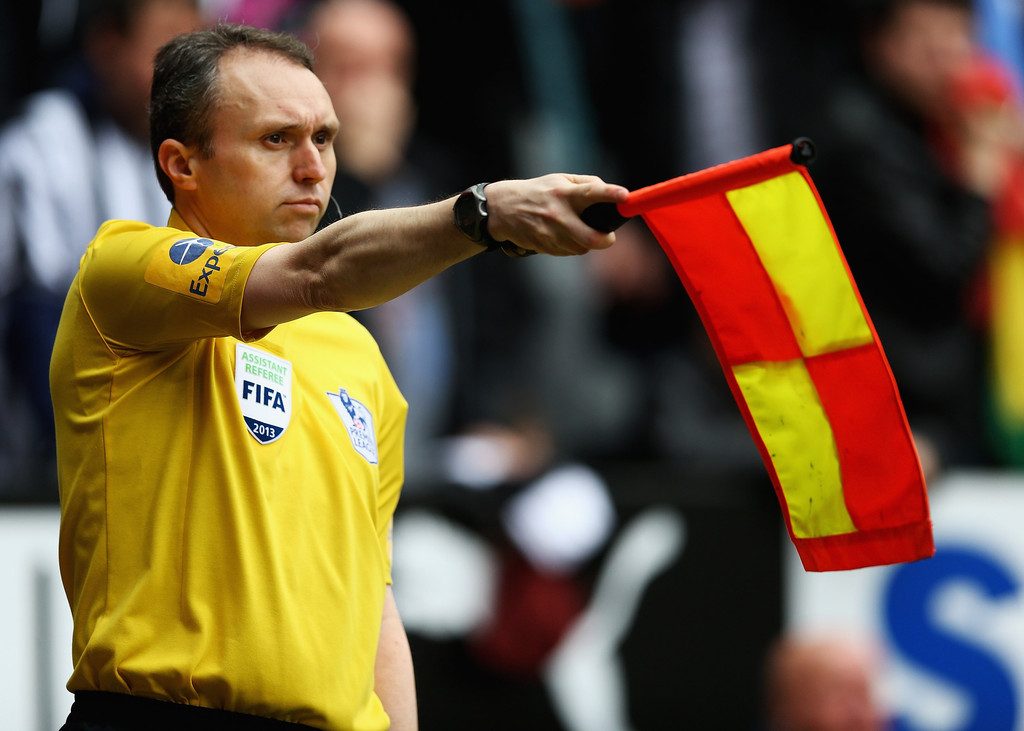New Orleans fans will never forget it.
When Drew Brees bulleted a pass to Tommylee Lewis on third down late in the Northern Football Conference championship game, and Rams cornerback Nickell Robey-Coleman left Lewis in a heap on the sideline, the call should have been pass interference. It wasn’t — the Saints lost the ball — and the Rams won the game in overtime.
Nine days later, The New York Times reported that Robey-Coleman was receiving death threats, and in response to the controversy, the NFL instituted instant replay for pass interference calls.
Across the sports world, refereeing mistakes are shining a spotlight on referees, and leagues from the NBA to the English Premier League are bringing in similar replay systems to get the big calls right.
As referees get the chance to review game situations, their accuracy is increasing, as CBS Sports has observed in the NBA. But the death threats aimed at Robey-Coleman point to a subtle toxicity seeping into the world of sports. Our emotional love for sports is being replaced by a pure hunger to win.
Obviously, winning is a fundamental part of competitive sports, and when fans are denied victory by a referee instead of the opposition, they feel robbed. As humans, we all want justice, and with the power of TV, every fan knows when a referee blows a call.
Replay gives referees that same power fans have had for years, and the results have been unquestionable.
Though soccer has never used a refereeing replay system, FIFA instituted Video Assistant Refereeing (or VAR) at the 2018 World Cup in Russia to resounding success. As The Guardian discussed after the 2018 World Cup, instant replay does decrease refereeing mistakes.
But VAR’s struggles in other areas have illustrated the problem with instant replay.
By nature, soccer is defined by game flow, with the clock only stopping for halftime and the referee making split-second decisions to determine fouls. Though sports like basketball allow for time to review potential mistakes, every second spent reviewing decisions in soccer is a second of gameplay lost.
Because soccer is so low-scoring, every goal is a release of pent-up emotions as the ball ripples the net. But with VAR’s introduction, players often score, reveling in the thrill of the moment, but then stand around aimlessly while referees wait for a video assessment.
Soccer journalist Gabriele Marcotti argues rightly that having a fair game for both teams is worth occasionally losing a few minutes of gameplay. But when review is called on a goal and the players’ first instincts are to wait for VAR rather than celebrate, part of the game’s soul has gone missing.
In leagues like the NFL, games are more suited to breaks for review, and the NFL will still only allow coaches to challenge two plays with the new rule update, according to The New York Times. But the same fundamental problem exists – hours of broadcast time are spent watching and debating miniscule infractions in the hopes of getting every call right.
Fans sit in suspense, not to see if Tom Brady can throw a crucial pass on fourth down, but to see through countless replays whether the referee interprets Julian Edelman’s catch as legal.
Yes, games will become fairer. And yes, fans are absolutely willing to sit in suspense for the call to go their way.
But the fact that fans are willing to sit through those endless slow-motion replays instead of just accepting a couple bad calls points toward a larger problem. Winning means so much that we’re not willing to let a bad call go, and instead the emotions driving our love for sports might be slipping away, bit by bit.
Nevertheless, instant replay is here to stay. And in extending the moment, in micro-analyzing every touch and movement, referees will get the big calls right.
But in our analysis, we might forget why we’re watching the game to begin with.
